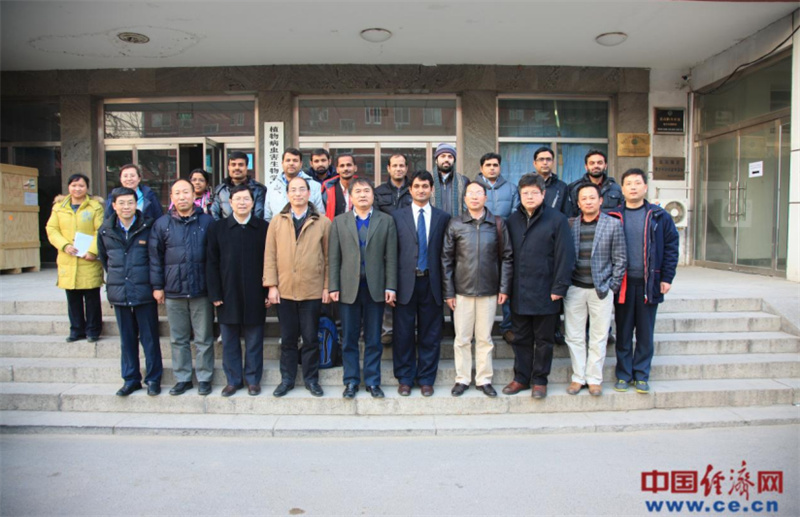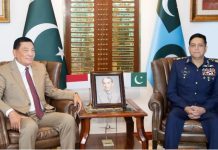BEIJING, : Pakistani students graduated from Chinese institutions are playing important role in technology transfer.
This was stated by Dr. Abid Ali, Department of Entomology, University of Agriculture, Faisalabad (UAF), Adjunct Professor at Shenyang Normal University and Research Fellow at Lanzhou University, China during an interview with China Economic Net (CEN).
“So far, 20,000 Pakistani students have graduated from China. And frankly, you would be surprised to see figures that more than 30,000 students are currently studying in China”, he said.
These students are active in Pakistan-China technological exchanges. According to Dr. Abid, 751 Pakistani students, researchers and university teachers participated in bilateral and multilateral agricultural training programs in 2021 supported by China Aid.
Dr. Abid Ali himself is an example. As early as twelve years ago, he was admitted to the Graduate School of The Chinese Academy of Agricultural Sciences (CAAS) for doctoral and postdoctoral studies under the supervision of Professor Dr. Wu Kongming, current president of CAAS.
“If you ask me why I studied in China for six years (four years for doctorate and two years for post doctorate), the answer is kindness. Not only my teachers and peer students who were so dedicated and encouraging that they helped me practice everyday Chinese speaking, writing and reading, but also the people outside the campus who treated me like their townsman”, he recalled.
A most impressive episode is his stay at the Experimental Station of Institute of Plant Protection of CAAS in Langfang, a city 40 kilometers away from Beijing.
“People there barely spoke any English, but somehow, I felt like living in my hometown. From the station manager, to the bus drivers, to the dormitory keepers, to the market sellers, they greeted me whenever they saw me.
When I was leaving, a Muslim brother who often invited me to his home for meals during the Muslim festivals asked me if I had enough money, just as my father did when I left Pakistan for China”. The good old days still shine vividly in his memory.
After graduation in 2016, he taught at Shenyang Normal University as Associate Professor under Talented Young Scientist Program (TYSP) and brought what he learned to his Alma Mater, the University of Agriculture Faisalabad, yet his ties with China have never been severed.
In 2020 when Pakistan was attacked by locusts, he facilitated the connection with Professor Zhang Long from China Agriculture University, one of the leading experts in the team that traveled from China to Pakistan to help with the desert locust control.
At the MNS University of Agriculture, Multan (MNSUAM), he initiated the first Chinese language course together with Hebei Institute of International Business and Economics, which has produced over 50 graduates now working in various sectors.
He also helped more Pakistani students to apply for Chinese academic institutions. “There were only three or four Pakistani students at GSCAAS back in 2010, but it is being introduced in front of more Pakistani young students.
Now, five of my master degree students are pursuing their doctoral degrees in Ningbo University, and one of my seniors Dr. Imran has become the first foreign professor in Zhejiang University, a prestigious institution in China”.
“With the technologies mutually promoted, the two countries can tap more opportunities of cooperation, such as agricultural tourism, rural transformation and inclusive growth, digital mass communication tools and joint publication of scientific journals, etc.”, Dr. Abid Ali concluded.
Information in this article comes from third party providers.
This website does not provide explicit or implied warranty for such information and is not liable for any losses directly or indirectly caused by using such information.

















